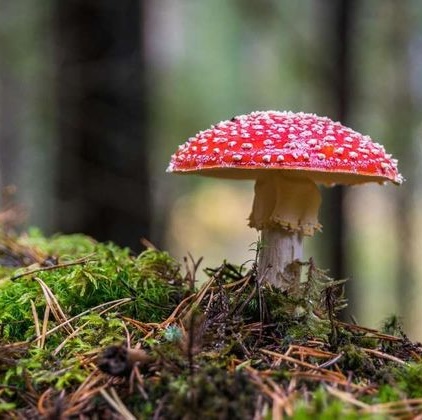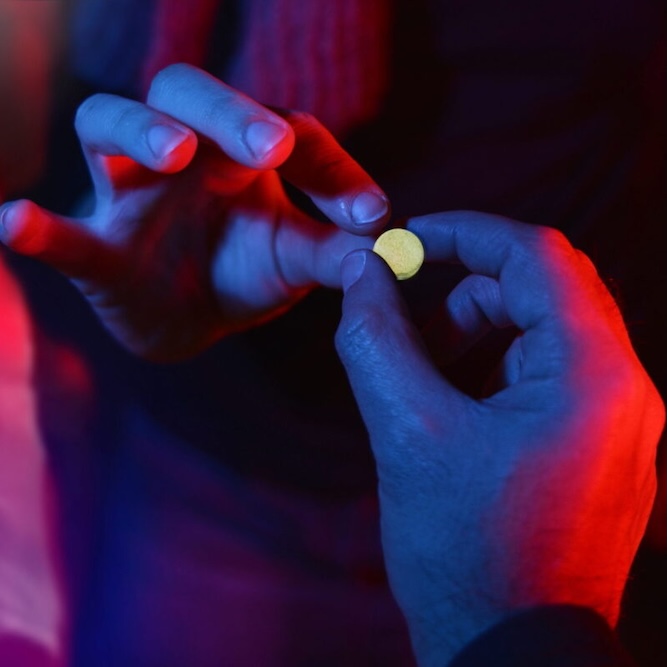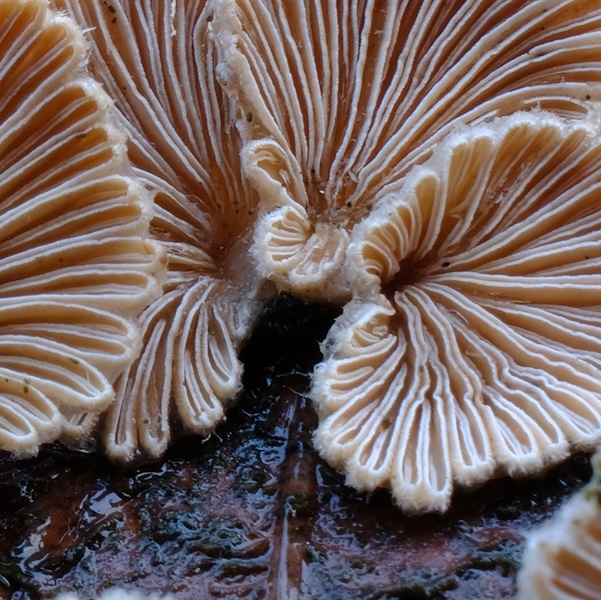Parkinson’s disease (PD) is best known for its tremors and movement difficulties, but it also comes with a heavy load of non-motor symptoms. Depression and anxiety affect a large portion of people with Parkinson’s, often severely impacting quality of life. Traditional antidepressants and anti-anxiety meds often don’t work well in PD, possibly due to the unique brain changes in this disease. In recent years, scientists and clinicians have begun exploring an unconventional treatment for these mood symptoms: psilocybin, the active compound in psychedelic mushrooms. Psilocybin has already shown antidepressant and anxiolytic (anxiety-reducing) effects in people without Parkinson’s. Could it do the same – or even more – for those with Parkinson’s? Early research says yes, it just might. From small pilot studies to patient anecdotes, we’re seeing hints that psilocybin therapy can improve depression and anxiety in PD, and maybe even certain physical and cognitive symptoms. In this blog, we’ll summarize the latest findings on psilocybin in Parkinson’s, including what clinical trials have found, how patients have responded, and what experts think about this frontier in PD care.
The first clinical trial: Psilocybin in parkinson’s patients
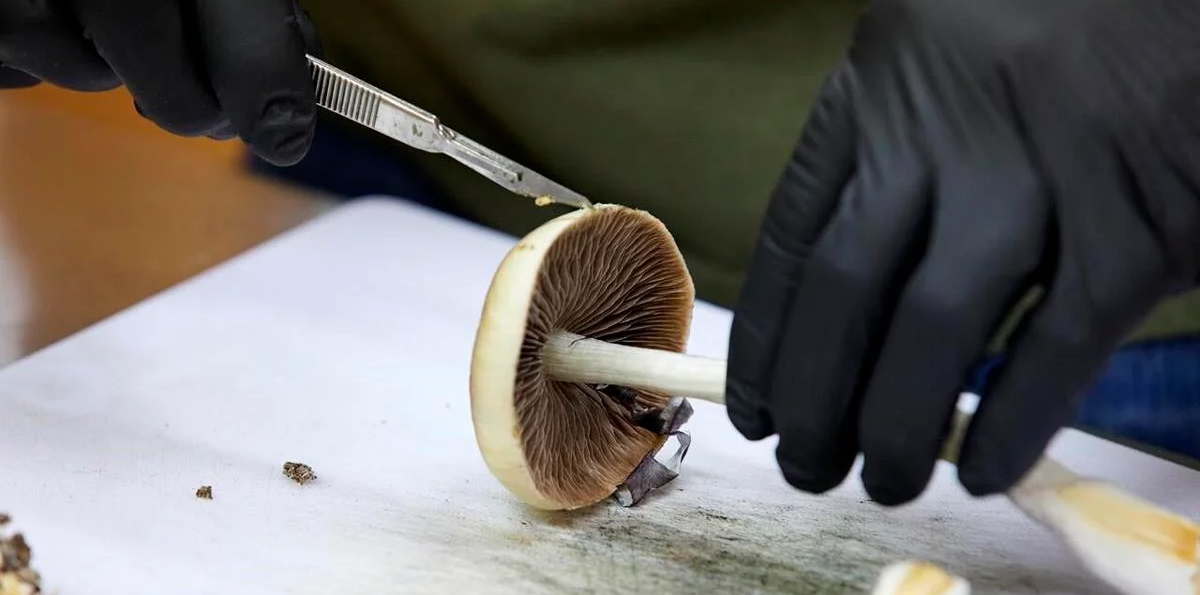
Until recently, people with neurodegenerative diseases like PD were excluded from psychedelic research due to safety uncertainties. That changed with a pioneering pilot study led by researchers at University of California, San Francisco (UCSF). In 2021-2022, UCSF conducted an open-label trial of psilocybin therapy in 12 patients with mild-to-moderate Parkinson’s disease who also had depression and/or anxiety. “Open-label” means everyone knew they were getting psilocybin (no placebo group in this initial safety-oriented study). Each participant underwent two dosing sessions: a low dose (10 mg) followed a few weeks later by a higher dose (25 mg), each accompanied by psychotherapy for preparation and integration.
The results, published in 2025, were very encouraging on the safety front and hinted at real benefits:
- Safe and well-tolerated: There were no serious adverse events and no need for medical intervention during any of the psilocybin sessions. Importantly, they observed no worsening of Parkinson’s motor symptoms or emergence of hallucinations/psychosis due to psilocybin. This was a big question – since PD patients can sometimes experience hallucinations from their disease or medications, adding a psychedelic could be risky. But in this carefully controlled setting, it appears to have been manageable. Some participants did have transient increases in blood pressure, some anxiety, or nausea (common psilocybin side effects), but these were handled with reassurance and did not require any medical treatment.
- Mood improved significantly: Depression and anxiety scores dropped notably after psilocybin treatment and stayed improved even three months later. On average, participants’ depression scores (MADRS scale) fell by about 9 points (from ~21 to ~12), and anxiety (HAM-A scale) by about 4 points. These changes were statistically significant and clinically meaningful – several patients moved from moderate depression into minimal depression range. What’s more, the improvements weren’t fleeting: at a 3-month follow-up, the mood benefits persisted. This durability echoes what’s been seen in psilocybin trials for major depression in the general population.
- No decline in motor function – Possibly Some Improvement: The researchers carefully measured PD symptoms using the Unified Parkinson’s Disease Rating Scale (MDS-UPDRS). They found no evidence that psilocybin made motor issues worse. In fact, participants’ motor scores improved modestly on average in the weeks after the sessions. For example, Part II of the UPDRS (activities of daily living impacted by motor symptoms) improved by about 7.5 points, and Part III (exam-based motor score) improved by ~4.6 points. These are small improvements, but any positive trend is notable since one might expect no change or even decline over that time in PD. It suggests a possible benefit of psilocybin on how patients function physically or at least how they perceive their capabilities.
- Better non-motor symptoms and cognitive performance: Strikingly, non-motor symptoms (UPDRS Part I, which includes aspects like mood, cognition, sleep) improved substantially – by ~13.8 points on that scale. Additionally, the patients underwent cognitive tests, and certain cognitive domains improved after psilocybin. Specifically, tasks of memory and learning (like Paired Associate Learning) and executive function (like Probabilistic Reversal Learning) showed significant enhancement post-treatment. This was a small sample, so we should be cautious, but it hints that psilocybin might have pro-cognitive or attentional benefits in PD, perhaps related to its neuroplastic effects.
In summary, this first trial signaled that psilocybin therapy is feasible and appears safe in Parkinson’s patients with depression/anxiety, and it may yield improvements in mood and even some PD-related symptoms. One month after the sessions, patients were doing better, and by three months, depression and anxiety were still significantly lower than baseline. The authors called this “the first data on psilocybin’s effects in any neurodegenerative disease” and concluded the results “suggest that psilocybin therapy in PD warrants further investigation.”.
Patients’ perspectives: Anecdotes and case reports
What do patients themselves report after trying psilocybin for PD? Beyond the numbers, some personal stories have emerged that shed light on benefits that are hard to quantify. One case report published in 2024 described a 43-year-old woman with Parkinson’s (notably, she did not have major depression) who underwent psilocybin-assisted psychotherapy in a clinical setting. After her sessions, she reported some fascinating improvements:
- Improved sleep and sense of smell: Parkinson’s often dulls the sense of smell and can disrupt sleep. This patient noticed that after psilocybin, her sleep and her olfaction got better. Regaining sense of smell, even slightly, is striking since loss of smell (anosmia) is a common PD symptom that usually doesn’t improve. It’s one anecdotal report, but it suggests psilocybin’s effects might extend to such sensory symptoms, possibly through reducing inflammation or improving neural processing in the olfactory system.
- Better psychological integration and acceptance: Perhaps the most profound change she described was in her mental outlook on the disease. She said psilocybin “helped [her] to better integrate her illness.” She came to “accept that PD is part of [her].”. This kind of acceptance can be immensely therapeutic. Instead of constant internal resistance to having Parkinson’s, which can cause stress and sadness, she found a way to make peace with it and prioritize her well-being. The report noted she became better at focusing on the present moment and her personal wellness, rather than being dominated by fear of the future. All her psychological assessments improved or stayed normal after treatment, reflecting this positive shift.
- Transient motor benefits: Interestingly, this patient felt her motor symptoms improved after each psilocybin session, subjectively. Her formal motor score didn’t significantly change at one-year follow-up (it stayed roughly stable, which in itself is not bad for PD). But that subjective boost right after sessions could tie into the mood lift and reduced anxiety – when you feel better mentally, your movements can feel easier too (less rigidity or tremor exacerbated by anxiety). It’s hard to pin down, but noteworthy that she perceived a motor benefit.
Another patient story comes from the UCSF pilot: although formal qualitative interviews from that study aren’t published in detail, the lead researcher, Dr. Ellen Bradley, shared a general observation – participants often described feeling “more connected” and having an easier time coping after the sessions. Many mentioned a sense of interconnectedness and transcendence similar to what non-PD patients report. This isn’t surprising because psilocybin’s core effects on consciousness (mystical-type experiences, feeling of unity, confronting existential concerns) don’t know whether you have Parkinson’s or not. And those effects can be particularly meaningful for PD patients who may feel isolated or defined by their illness.
The mood improvements in Parkinson’s patients seem to echo what’s seen in other groups: some describe the experience as “resetting” their thinking or providing a new perspective where depression and anxiety no longer dominate. One might imagine a person with PD who has been in a dark tunnel of worry (“How will my disease progress? I feel hopeless.”) taking psilocybin and, during a profound experience, maybe confronting their fear in a new way or feeling a spiritual comfort. The result can be a lasting reduction in anxiety and a more hopeful outlook. Indeed, feelings of unity and being part of something larger were reported by patients in psychedelic studies, which can reduce the existential loneliness that often accompanies chronic illness.
In summary, early patient reports suggest psilocybin can improve quality of life in ways beyond just ticking off depression boxes. Better sleep, renewed sense of purpose, acceptance of one’s condition, even noticing colors brighter or enjoying music more (as some anecdotally say) – these things collectively enhance well-being for someone with Parkinson’s.
How could psilocybin help Parkinson’s patients?
Critics question whether isolating and synthesizing naturally occurring compounds like DMT might diminish their therapeutic power. Traditional ayahuasca brews, for example, combine plants containing DMT with natural MAO inhibitors that prolong its effects. Additionally, the “entourage effect” suggests that the interaction of multiple compounds in natural substances may enhance their overall efficacy. While Entheon’s synthetic DMT isn’t designed to replicate the ayahuasca experience, some wonder if vital elements of plant medicine are lost in the transition to a lab-developed treatment.
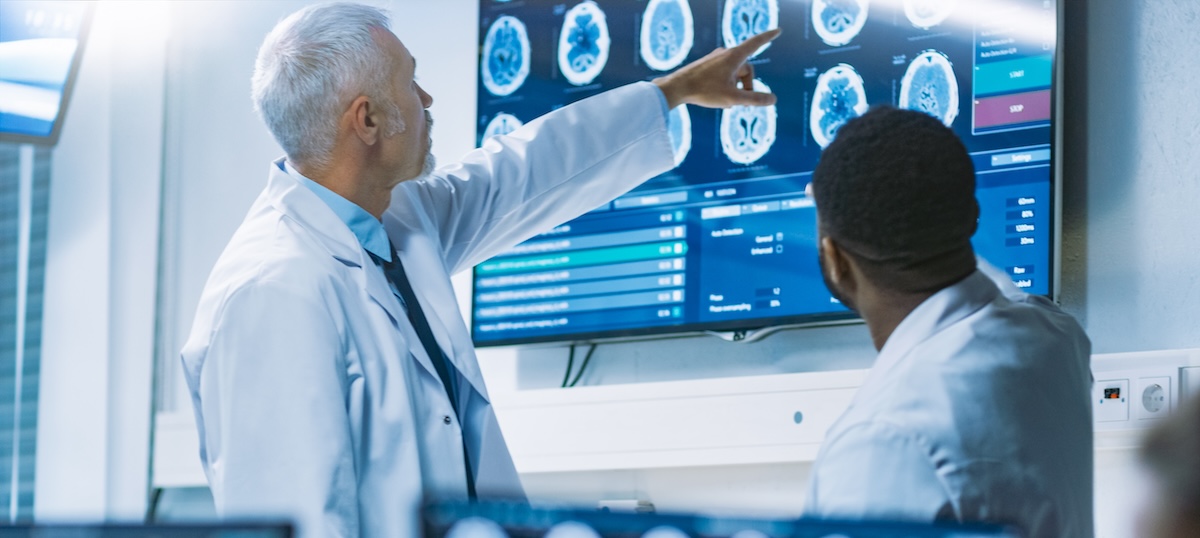
A controlled, therapeutic future
Psilocybin’s primary investigated role in PD so far is treating mood symptoms, which is already a big deal. Depression in PD isn’t just an add-on problem; it can actually speed up physical decline and worsen outcomes. So an effective treatment for depression could indirectly improve other aspects. The quick action of psilocybin is a bonus – instead of waiting 6-8 weeks for an antidepressant to maybe work (often they don’t in PD), psilocybin might alleviate depression within days, and with just one or two sessions.
Beyond mood, researchers are curious if psilocybin might have neuroprotective or disease-modifying effects in Parkinson’s. In the lab, psilocybin and related compounds show anti-inflammatory and neuroplastic effects. PD involves neuroinflammation and the loss of dopaminergic neurons; a drug that reduces inflammation and encourages neural growth or new connections could, hypothetically, slow the progression of the disease or at least bolster the remaining neural networks. One systematic review even suggested that psilocybin (like the diabetes drug metformin) showed prophylactic benefits in preclinical models of PD – meaning in rodent or cell models, psilocybin had protective effects against Parkinson-like damage. This is very early-stage evidence, but intriguing.
Dr. Ellen Bradley points out that psilocybin’s effects – like increasing expression of genes that support brain cell health and decreasing inflammation – could target some underlying aspects of PD neurodegeneration. “Could these effects dampen the brain inflammation that contributes to neurodegeneration and strengthen connections between neurons that are weakening? We have a lot of work ahead to figure out if that’s possible,” she says. In essence, there’s a scientific rationale that psilocybin might not only help symptoms but also the brain itself in Parkinson’s.
It’s important to stress that no one is claiming psilocybin will reverse PD or restore dopamine cells at this point. The focus is symptomatic relief (especially psychiatric symptoms) and possibly slowing bad processes like inflammation. To investigate these possibilities, the next wave of research is incorporating brain imaging and biomarkers. The ongoing larger trial at UCSF (and a site at Yale) is giving psilocybin to 100 patients in a randomized controlled fashion and will include MRI scans and blood tests to see how the brain connectivity and inflammatory markers change. This will help answer if the neural “reset” that psilocybin seems to do in depression (like functional MRI showing normalized connectivity patterns) also happens in PD brains.
Cautious optimism and what’s next
The early success of the pilot has paved the way for that larger trial, funded in part by the Parkinson’s community (e.g., the Michael J. Fox Foundation). Researchers are enthusiastic but careful. “This is uncharted territory, so we want to move forward thoughtfully,” says Dr. Bradley. “There’s a lot of excitement and potential but also a deep respect for a complex drug that impacts the brain and nervous system.”. This balanced approach highlights that while psilocybin could be beneficial, it must be administered with proper precautions in PD patients.
One such precaution is excluding patients with existing psychosis or hallucinations, since adding a psychedelic in those cases could be destabilizing. The current studies focus on PD patients who have depression/anxiety but no active psychosis. Another precaution is the controlled setting: patients receive synthetic, precisely dosed psilocybin in a quiet, supportive environment with a therapist present. They also undergo therapy sessions before and after to integrate the experience. This maximizes safety and comfort, which is important given Parkinson’s patients might have medication interactions or physical needs (e.g., timing their PD meds, or needing help if they have mobility issues during the 6-hour session).
The fact that Yale is joining UCSF in the larger trial shows growing interest among neurologists. It’s quite groundbreaking – traditionally, the neurology field hasn’t mixed with psychedelic therapy, but that’s changing. If the 100-person trial shows clear benefits, we could be looking at accelerated development of psilocybin (or similar compounds) as an adjunct treatment for Parkinson’s. Perhaps in a few years, a neurologist might refer a patient to a psychedelic therapy program for managing PD-related depression once it’s an established, approved treatment.
It’s also worth noting that other psychedelics are being explored: there is a trial of ketamine (a dissociative psychedelic anesthetic) for depression in PD as well. Ketamine is already used off-label for depression widely, so if that trial succeeds, it could be an earlier option while psilocybin goes through the approval process.
Patients, naturally, are eager for anything that might help – but experts caution against self-medicating or unsupervised use. Microdosing psilocybin, for instance, is a trend some have tried, but we have no research on microdosing in PD and no agreed dosing for it. Dr. Bradley advises Parkinson’s patients to not jump into that, as the effects and safety are unproven. Additionally, psychedelics can interact with other medications or potentially exacerbate certain PD symptoms like hallucinations if not careful. So, for now, this therapy should remain in the realm of clinical trials or very controlled settings.
Conclusion
The use of psilocybin in Parkinson’s disease is a promising and novel avenue that addresses a critical unmet need: treating mood and mental health in PD. Early evidence from a UCSF pilot trial shows that psilocybin therapy can be delivered safely to PD patients and can lead to significant reductions in depression and anxiety, with effects lasting at least several weeks to months. Patients also reported feeling more at peace with their illness and even noticed improvements in aspects like sleep and sense of smell, indicating broader quality-of-life enhancements. There are hints that psilocybin might positively influence cognitive function and possibly motor symptoms in Parkinson’s as well, though more research is needed to confirm these effects.
The enthusiasm is tempered with appropriate caution – larger controlled trials are underway to truly determine efficacy and monitor any risks. Still, the fact that multiple major research centers are now studying psychedelics for Parkinson’s marks a turning point. It reflects a “renaissance” in psychedelic science reaching the neurology field. As one Parkinson’s expert put it, “Regardless of how psilocybin therapy might work, this is very compelling since available antidepressants typically take weeks to work” – and PD patients don’t have time to waste on ineffective treatments.
For individuals living with Parkinson’s, the prospect of a therapy that can rapidly improve mood, reduce anxiety, and possibly even sharpen thinking or movement is an exciting one. Imagine going from feeling hopeless and disconnected to, after a psilocybin session, feeling hope, connection, and relief – that can be life-changing. While it’s not a cure for Parkinson’s (nothing currently is), it could significantly lighten the burden of the disease.
In the coming years, we’ll learn much more as results from larger trials come in. If they are positive, psilocybin-assisted therapy might become an approved part of Parkinson’s care, used alongside dopamine medications and physical therapy to address the person as a whole – brain, mind, and spirit. The story of psilocybin in Parkinson’s is just beginning, but it carries a message of hope: even in a tough neurodegenerative disease, there may be new ways to improve life and outlook for patients, drawn from the unlikeliest of sources, magic mushrooms. As always, anyone considering such options should do so under medical guidance and within clinical studies for now. But the direction is clear – psychedelic research is forging a path toward better care in Parkinson’s, and many are eagerly watching that trailblazing journey.
Sources:
UCSF-led open-label trial of psilocybin in PD (Neuropsychopharmacology, 2025)
nature.comnature.com;
Michael J. Fox Foundation Q&A with Dr. Ellen Bradley
michaeljfox.orgmichaeljfox.org;
case report of psilocybin in PD patient
researchgate.net;
background on mood in PD and psilocybin mechanisms
michaeljfox.orgmichaeljfox.org.

